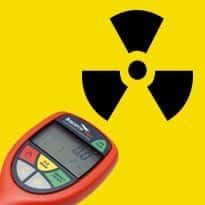The Department of Health is to set up a new working party on radiation dose monitoring.
The body, composed of representatives of relevant professional bodies, will look into what data is currently being collected by hospitals and will work with Public Health England on future population dose levels.
The eventual aim is to create a national dose registry. Ian Chell, policy manager for ionizing radiation at the Department of Health, announced the plans at the annual meeting of the UK Imaging Informatics Group at EHI Live 2013.
“Newer X-ray and CT modalities can export digital dose data to PACS, or to a dose analysis system using the DICOM standard, which facilitates the creation of a database of radiation dose data,” Chell told the meeting.
“This can be used to set diagnostic reference levels and for contributing to dose optimisation.”
A previous DH working party on the issue concluded that the NHS and independent healthcare providers should be informed about interoperability standards and the scientific and clinical limitations of dose monitoring, and that these should be considered by means of a further information paper.
However, Chell said that current dose monitoring software from suppliers offers an output that would enable a national dose audit to take place.
Larger data sets would lead to more accurate estimates of patient doses. In turn, this would “generate more reliable diagnostic reference levels, which can be reviewed more frequently.”
Optimisation also implies image quality assessment, Chell said. “Public Health England is keen to establish national benchmarking in this area.”
Regional scientific directors will be responsible for promotion, dissemination and monitoring of the patient dose information, and best practice in optimisation, as well as supporting lead scientists in NHS trusts and other providers in a governance role.
A new European directive on radiation protection would soon be in place, Chell said, and the UK will have four years from that date to implement it.
The directive effectively states that any new radiation-producing medical equipment has to be able to able to output radiation data in DICOM format.
The DH will also need to review the monitoring of population dose, he said, adding: “Automatic data collection brings the challenge of what is to be collected.”
The working party will support the next round of PHE national surveys “with respect to the possibility of data collection through electronic patient dose records, web-based systems, and dose management systems.”
In addition, it will review and create national standard protocols for data acquisition and review and compare commercial dose management systems.
“You have to understand that the UK tends to cut new ground in PACS because of the scale of the NHS – this is globally leading stuff,” Chell said.
He added, however, that the project would need good leadership to make sure we don’t end up with “yet another IT white elephant”, and he advised trusts to get their PACS contracts right to ensure future IT interoperability.

